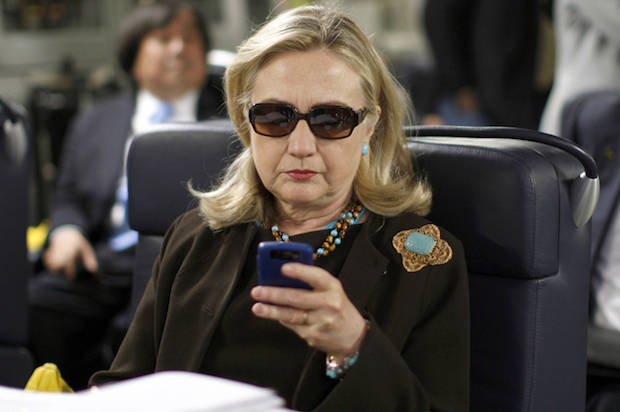The only thing Hillary Clinton had to gain from using a private email account and server as Secretary of State was convenience. She wasn’t trying to hide or steal anything. You could argue this server was less secure and made it easier to hack sensitive business, but it’s not like the American government’s servers are exactly impervious to breaches.
The partisanship of the FBI in trying to launch an October surprise may be shockingly reckless, but the press in all its forms was making a small story into a huge one long before Comey’s cohort tried to tip the election. The media may know its biases, but when it comes to scandal–or something that looks like it might pass for it–everyone is all in. That’s why a Secretary of State using a private email account, something Colin Powell also did, has been treated with the utmost importance, though it will not in any way decide foreign policy or create jobs or fix the healthcare system. When it comes to the future of our country, it’s a non-issue masquerading as a vital one.
The opening of Matthew Yglesias’ take on the “scandal” at Vox:
Some time ago, Hillary Clinton and her advisers decided that the best course of action was to apologize for having used a personal email address to conduct government business while serving as secretary of state. Clinton herself was, clearly, not really all that remorseful about this, and it showed in her early efforts to address it. Eventually aides prevailed upon her to express a greater degree of regret, which they hoped would lay the issue to rest.
It did not. Instead, email-related talk has dogged Clinton throughout the election and it has influenced public perceptions of her in an overwhelmingly negative way. July polling showed 56 percent of Americans believed Clinton broke the law by relying on a personal email address with another 36 percent piling on to say the episode showed “bad judgments” albeit not criminality.
Because Clinton herself apologized for it and because it does not appear to be in any way important, Clinton allies, surrogates, and co-partisans have largely not familiarized themselves with the details of the matter, instead saying vaguely that it was an error of judgment and she apologized and America has bigger fish to fry.
This has had the effect of further inscribing and reinscribing the notion that Clinton did something wrong, meaning that every bit of micro-news that puts the scandal back on cable amounts to reminding people of something bad that Clinton did. In total, network newscasts have, remarkably, dedicated more airtime to coverage of Clinton’s emails than to all policy issues combined.
This is unfortunate because emailgate, like so many Clinton pseudo-scandals before it, is bullshit. The real scandal here is the way a story that was at best of modest significance came to dominate the US presidential election — overwhelming stories of much more importance, giving the American people a completely skewed impression of one of the two nominees, and creating space for the FBI to intervene in the election in favor of its apparently preferred candidate in a dangerous way.•
Tags: Hillary Clinton, Matthew Yglesias

